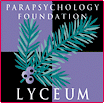 |
 |
| Click here for a French version of this blog
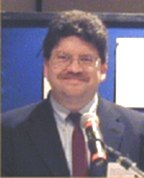
PF Lyceum Blog #10, May 23nd, 2006 Carlos S. Alvarado, Ph.D. It is always difficult to find good and reliable sources of information on parapsychology when one is starting to study the field. Of course, to some measure, it is a matter of opinion as to what is good reference information in parapsychology. There is no question that searching for sources on the Web can sometimes be problematic because Internet search engines mix the wheat and the chaff indiscriminately. (For more information on these issues, click here). In what follows I have selected a variety of on–line information sources to guide you in your study, provided, of course, that you always maintain a critical attitude. On the Parapsychology Foundation website we have a section of general information about resources, terminology, organizations, and articles and books on–line called “Psi Info”. Other general pages available from other websites include:
The Parapsychological Association has a position paper on Terms and Methods in Parapsychological Research that outlines useful introductory concepts. The Parapsychology Foundation also has introductory on–line essays on such topics as:
 Several chapters of Harvey Irwin’s An Introduction to Parapsychology (2004) are available on–line thanks to McFarland Publishing Company. Among these are: the introduction and a chapter that discusses the field as a scientific discipline. Several chapters of Harvey Irwin’s An Introduction to Parapsychology (2004) are available on–line thanks to McFarland Publishing Company. Among these are: the introduction and a chapter that discusses the field as a scientific discipline.There is also material from the skeptical perspective available in The Skeptic’s Dictionary and in discussions of deception in psi research. Daniel H. Caldwell’s “Parapsychology, Anomalies, Science, Skepticism, and CSICOP” presents the views of skeptics as well as criticism of skeptical writings. I have compiled several bibliographies of parapsychological topics that appear on the website of the Parapsychology Foundation. We have over 40 bibliographies covering such varied topics as introductions to parapsychology, bibliographies, education in parapsychology, parapsychology as a science, spontaneous ESP experiences, experimental parapsychology, hauntings, and biographies and autobiographies of parapsychologists, among others. 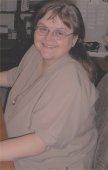 Other work includes Nancy L. Zingrone’s bibliographical essay, and such works as “Parapsychology and the Occult,” Charles T. Tart’s list, and the recommended readings of other organizations such as the Division of Perceptual Studies. See also the 1998 bibliographies of members of the Parapsychological Association, the 1999 the bibliographies of members of the Parapsychological Association, and Ruth Reinsel’s “Endnote Library of Parapsychology Articles.” (The photo to the right is Nancy Zingrone.) Other work includes Nancy L. Zingrone’s bibliographical essay, and such works as “Parapsychology and the Occult,” Charles T. Tart’s list, and the recommended readings of other organizations such as the Division of Perceptual Studies. See also the 1998 bibliographies of members of the Parapsychological Association, the 1999 the bibliographies of members of the Parapsychological Association, and Ruth Reinsel’s “Endnote Library of Parapsychology Articles.” (The photo to the right is Nancy Zingrone.)
In addition, other online bibliographies include the IONS Distant Healing Bibliography, the Therapeutic Intent/Healing Bibliography of Research, and many other topic bibliographies such as that on out–of–body experiences.  Glimpses into the old psychical resesearch literature can be found in sections of Nandor Fodor’s, Encyclopedia of Psychic Science, and in S. R. Morgan’s Index to Psychic Science. (The photo to the left is Nandor Fodor.) 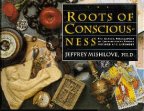 A general overview that combines parapsychology and a variety of other movements and traditions is Jeffrey Mishlove’s The Roots of Consciousness. I have also compiled lists of introductory books, and of encyclopedias, glossaries and literature reviews. For definitions of terms, see the glossary on the Parapsychology Foundation’s website. A general overview that combines parapsychology and a variety of other movements and traditions is Jeffrey Mishlove’s The Roots of Consciousness. I have also compiled lists of introductory books, and of encyclopedias, glossaries and literature reviews. For definitions of terms, see the glossary on the Parapsychology Foundation’s website.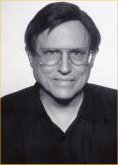 The Division of Perceptual Studies also has useful material and advice for beginners who are contemplating a career in parapsychology. Both Matthew Smith at Liverpool Hope University and John Palmer have authored essays on education in parapsychology. (The photo to the left is John Palmer.) The Division of Perceptual Studies also has useful material and advice for beginners who are contemplating a career in parapsychology. Both Matthew Smith at Liverpool Hope University and John Palmer have authored essays on education in parapsychology. (The photo to the left is John Palmer.)
I have written several essays about parapsychology as a career. They are: “Parapsychology as a Profession,” “Getting to Work in Parapsychology,” and “Reflections on Being a Parapsychologist”. In addition, the Parapsychology Foundation has bibliographies about Aspects of Parapsychology as a Profession and Education in Parapsychology.  Dean Radin’s “Frequently Asked Questions about Parapsychology” provides a good short on–line introduction to parapsychology that will help newcomers to the field to distinguish between parapsychology and the occult, as well as to obtain an understanding of what scientific and academic parapsychologists study. A general, informal but interesting discussion of differing viewpoints can be found on the “Closer To Truth” website in What is Parapsychology?. (The photo to the right is Dean Radin.) Dean Radin’s “Frequently Asked Questions about Parapsychology” provides a good short on–line introduction to parapsychology that will help newcomers to the field to distinguish between parapsychology and the occult, as well as to obtain an understanding of what scientific and academic parapsychologists study. A general, informal but interesting discussion of differing viewpoints can be found on the “Closer To Truth” website in What is Parapsychology?. (The photo to the right is Dean Radin.)
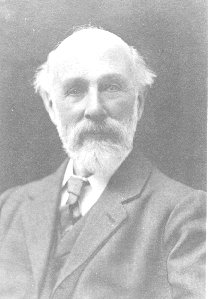 The question of survival of bodily death is the subject of the “Survival After Death” website, where full–text versions of many articles and some books from the old days can be found. Some of these books include: Deathbed Visions, by William F. Barrett, A Critical Examination of the Belief in Life After Death, by C.J. Ducasse, Intention and Survival, by T. Glen Hamilton, and Psychical Research and Survival, by James H. Hyslop. The Survival Research website also has good scholarly articles on the topic. In addition, there are several databases that include modern and classic articles and books about psychic phenomena. (The photo to the left if William Barrett.) The question of survival of bodily death is the subject of the “Survival After Death” website, where full–text versions of many articles and some books from the old days can be found. Some of these books include: Deathbed Visions, by William F. Barrett, A Critical Examination of the Belief in Life After Death, by C.J. Ducasse, Intention and Survival, by T. Glen Hamilton, and Psychical Research and Survival, by James H. Hyslop. The Survival Research website also has good scholarly articles on the topic. In addition, there are several databases that include modern and classic articles and books about psychic phenomena. (The photo to the left if William Barrett.)
The best single on–line resources for parapsychology probably is Lexscience: Library of Exploratory Science This subscription–based resource has the content of important parapsychological journals, such as the Journal of Parapsychology and the Proceedings of the Society for Psychical Research, as well as the beginnings of a library of classic books such as Phantasms of the Living and Human Personality and Its Survival of Bodily Death. For the Lexscience index click here. (The PF is currently working to make all of our own materials available on our own on–line full–text content website. People who log on to our new website will be able to read, download pages, chapters and articles from all of the PF’s publications, past and present, economically and easily. Watch for the launch announcement in the coming months.) Many researchers and scholars have articles available on the web. (Click here for a list.) More technical discussions appear in the proceedings of presented papers at conferences of the Parapsychological Association, in the Retro Psychokinesis Project, and in Pear Publications. This is by no means an exhaustive list of what the Web has to offer regarding parapsychology. Nonetheless, I hope that these links give you an idea of the material available in the virtual world. *************** Click here for Past Blogs |
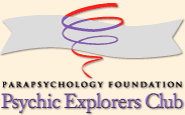 |

|
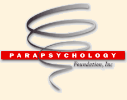 www. parapsychology. org |
||